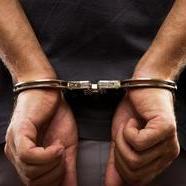(Harry Potter Spoilers) Ghost Stories
Oh man is this thing spoilerific. Seriously, don't read more if you haven't read the book.
I finished the seventh book yesterday. There were some things, some events in the plot that did not please me, but that was bound to happen, I suppose. The body count was impressive, and Rowling was bound to work her way someone I liked. That it was my two favorite characters in the entire series was, naturally, bad luck. Actually, I was surprised to see Colin Creevy in Hogwarts at all. I thought for sure him, his brother, and Justin Finch-Fletchy had already been killed or were in hiding. I guess he could have surfaced with the rest of Dumbledore's Army, and if so paid for his bravery. Actually, that makes a lot of sense now that I think about it. That said, Dobby's death makes me want to throw things, even if she did a better job of giving him a grand exit than she did for Colin.
But for everything I didn't like, there was a dozen details that made me smile, even while tearing:Ginny's refusal to let Cho go off alone with Harry, Hermione's full-frontal snogging of Ron, McGonagol's powers of transfiguration in a duel (and the Colin in me went "Yes!"), Molly's duel with Bellatrix (outright cheers here), and, surprisingly, Mrs. Longbottom. Molly had always been a fascination of mine, because I knew she was more powerful than she acted, and that her greatest power would come when Ginny was threatened. In fact, the only attempt I ever made at HP fanfiction dealt on this topic. But I had never considered the story of Mrs. Longbottom, a woman so formidible that she raised not just her son Frank, hero among aurors, but Neville, who with Harry proved himself probably the bravest Gryffindor to don the Sorting Hat. The story of her battle with Death Eaters, her appearance and formidable support of her grandson, were impressive additions to the book. I suspect though that she didn't make it either, as she isn't mentioned again, and one would expect her to be one of the first to rush to her grandson's side in the final skirmish, and she wouldn't exactly have been quiet in the lull between the melees.
I was also impressed by Rowling's deliberate tweaking of mythology. For those that didn't get it yet, Syltherin is Water, Gryffindor is Fire, Hufflepuff is Earth, and Ravenclaw is Air. I'm willing to believe that the scrambled symbols of air and fire (properly and respectively, a sword and a spear or wand) were due to happenstance, the virtues of the houses as she laid them out, and the more compelling story of the elder wand. But I think the cup and the pentacle were mixed up deliberately, when she realized what she'd done with the first two. On the other hand, the professors that lead these houses are exactly the ones that make sense: Air light charms, liquids potions, plants in the earth, and what can be more transfiguring than fire? I wonder if they let a Hufflepuff teach transfiguration to balance against Neville, for herbology must have been seen as the Hufflepuff post since the founding.
Even odder (if more obscure), are the ghosts. Ghosts, in literature, are commonly representatives of an oracular tradition, usually one that is dying out. They are the ultimate stories that change after they have been finished, and are never perfect yet each time correct. Even the phrase ghost stories conjures, for most, oral storytelling. At least, that's what they are usually. Rowling does have some elements of the traditional view (it is so strong I don't think she had a choice): note that the ghost professor teaches history, and several times across almost every book secrets are held only by ghosts or the memories of the dead. But in the cases of the house ghosts, Rowling has done something a little different. To recap, the prized virtues of the Hogwarts houses are Bravery for Gryffindor, Ambition (and to a lesser extent dispassion) for Slytherin, Intelligence for Ravenclaw, and Loyalty for Hufflepuff. However, we learn in books 5 and now 7 that three of the ghosts who have been chosen to represent the traditions of their houses are ghosts at all because they failed to emulate their houses most prized virtue. Nearly Headless Nicholas, we learn in five, was afraid of death. The Gray Lady admits in seven that she acted like an idiot, and died for it. The Bloody Baron, it turns out, walks forever because he gave up his dispassion and slew his own greatest ambition. It makes you wonder who the Fat Friar betrayed, doesn't it?







1 Comment
Recommended Comments
Create an account or sign in to comment
You need to be a member in order to leave a comment
Create an account
Sign up for a new account in our community. It's easy!
Register a new accountSign in
Already have an account? Sign in here.
Sign In Now